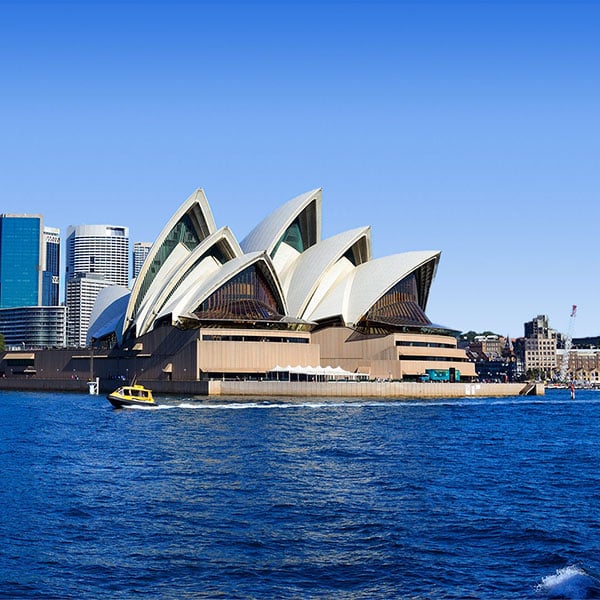eDreams is now available in the following countries:
Europe
America
Africa
Oceania
Or you can visit ourglobal site
Cheap flights to Port Macquarie
Flights
Hotels
Flight + Hotel
Car rental
Date
Date
1
Explore the best deals
Discover the cheapest flights to Port Macquarie
Filter by
Sun, 11 Jan - Mon, 19 Jan
Regional ExpressDirect
Sydney - Port Macquarie
Regional ExpressDirect
Port Macquarie - Sydney
314$
295$
Thu, 1 Jan - Mon, 5 Jan
Regional ExpressDirect
Sydney - Port Macquarie
Regional ExpressDirect
Port Macquarie - Sydney
317$
296$
Thu, 19 Feb - Sun, 22 Feb
Qantas AirwaysDirect
Sydney - Port Macquarie
Qantas AirwaysDirect
Port Macquarie - Sydney
444$
416$
Wed, 28 Jan - Wed, 4 Feb
Qantas Airways1 stop
Melbourne - Port Macquarie
Qantas Airways1 stop
Port Macquarie - Melbourne
817$
766$
Wed, 4 Feb - Mon, 9 Feb
Qantas Airways1 stop
Auckland - Port Macquarie
Air New Zealand1 stop
Port Macquarie - Auckland
1044$
957$
Mon, 2 Mar - Wed, 4 Mar
Qantas Airways1 stop
Christchurch - Port Macquarie
Qantas Airways1 stop
Port Macquarie - Christchurch
1050$
963$
Fri, 9 Jan
Regional ExpressDirect
Sydney - Port Macquarie
136$
127$
Fri, 9 Jan
Regional ExpressDirect
Sydney - Port Macquarie
136$
127$
Mon, 26 Jan
Qantas AirwaysDirect
Brisbane - Port Macquarie
207$
193$
Sun, 22 Feb
Qantas AirwaysDirect
Brisbane - Port Macquarie
286$
268$
Mon, 2 Feb
Qantas Airways1 stop
Tokyo - Port Macquarie
1984$
1933$
The prices shown on this page were available within the last 20 days for the specified periods and should not be considered the final price offered. Please note that availability and prices are subject to change.
Popular flight routes to Port Macquarie

Flights from Sydney to Port Macquarie Prime price per passenger
172$
160$
How long is the flight to Port Macquarie?
If you’re planning a trip to Port Macquarie, we at eDreams have looked into the most popular routes to help you plan ahead. From Christchurch, the flight takes about 7h 50m; from Auckland, around 11h 32m; and from , roughly 23h 25m.Direct Flight Time (in Hours)
Christchurch
Auckland
Frequently asked questions about flights to Port Macquarie
How can I find cheap flights to Port Macquarie on eDreams?
At eDreams you will find flights from 127$ to Port Macquarie. Thanks to the combination of various technologies, machine learning algorithms and real user searches on our platform, you will be able to choose between the different options that best suit your needs when you have to fly to Port Macquarie.
How far is Port Macquarie’s airport from the city centre?
Port Macquarie’s airport Port Macquarie Airport is located 22 kms from the city centre.
How much is the trip from the airport to Port Macquarie’s city centre?
Public transport: The price for the trip is about 3.44 $ per person.
Taxi: If you have more budget and prefer to take a taxi from Port Macquarie Airport , the average price for the ride to Port Macquarie centre is around 4.01 $ per km.
Car: For more convenience and freedom during your stay, eDreams has the best offers of car rentals in Port Macquarie. Pick your preferred car type and get from Port Macquarie Airport to Port Macquarie city centre on your own terms.
Taxi: If you have more budget and prefer to take a taxi from Port Macquarie Airport , the average price for the ride to Port Macquarie centre is around 4.01 $ per km.
Car: For more convenience and freedom during your stay, eDreams has the best offers of car rentals in Port Macquarie. Pick your preferred car type and get from Port Macquarie Airport to Port Macquarie city centre on your own terms.
What is the weather like in Port Macquarie?
If you're looking for summer vibes, the best time to travel to Port Macquarie is in January, February and November, when the average temperature reaches 30.43 °C, while August, July and September are the 3 sunniest months of the year, with an average of 89.67 hours.
However, if you prefer colder temperatures, make sure you visit Port Macquarie during July, August or May to experience an average of 7.94 °C.
For those who don't care too much about temperatures, but want to avoid getting wet in the rain, it's important to avoid travelling during May, June and July, when the average precipitation in Port Macquarie is 6.75 mm, while the months of January, February and March are drier, with an average of 0 mm.
Plan your trip
Popular cities
- Flights to Fukuoka
- Flights to Brisbane
- Flights to Canberra
- Flights to Sunshine Coast - Maroochydore
- Flights to Gold Coast - Coolangatta
- Flights to Perth
- Flights to Sydney
- Flights to Auckland
- Flights to Brussels
- Flights to Melbourne
- Flights to Newcastle
- Flights to Kempsey
- Flights to Taree
- Flights to Macksville
- Flights to Nambucca Heads
- Flights to Forster
- Flights to Coffs Harbour
- Flights to Walcha
- Flights to Armidale
- Flights to Bolwarra
- Flights to Tamworth, NSW
- Flights to Grafton
- Flights to Scone
- Flights to Singleton
